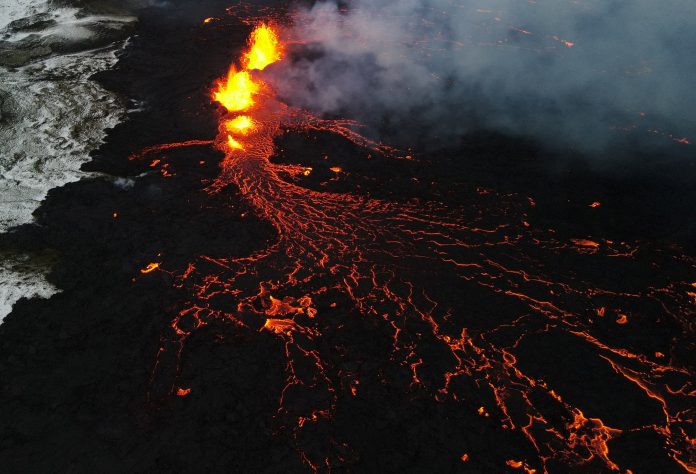A volcano in Iceland erupted on Saturday for the fourth time since December, but infrastructure and a nearby fishing town were safe for the moment, authorities reported.
The eruption marked the seventh on the Reykjanes peninsula near Iceland’s capital Reykjavik since 2021. Artificial barriers have successfully diverted lava away from infrastructure including the Svartsengi geothermal power plant and Grindavik, a fishing town of about 4,000 residents. Local utility HS Orka stated:
The defences at Grindavik proved their value … they have guided the lava flow in the intended direction.
Magma has been accumulating underground since the last eruption in February, prompting authorities to warn of an imminent outburst. The warning time late Saturday night was just 15 minutes before fountains of molten rock began surging from a fissure 3 kilometres (1.9 miles) long.
Lava flows continued at a steady pace on Monday and it was too early to predict when they would end, Magnus Tumi Gudmundsson, professor of geophysics at the University of Iceland, reported.
It was surprisingly stable overnight and certainly majestic, but is still only between 2-5% of what it was at the beginning.
